
Anna Marie "Patty" Duke was an American actress and mental health advocate. Over the course of her acting career, she was the recipient of an Academy Award, two Golden Globe Awards, three Primetime Emmy Awards, and a star on the Hollywood Walk of Fame.

100 Girls is a 2000 American romantic comedy film written and directed by Michael Davis. It tells the story of a college student's efforts to find a mystery girl with whom he had sex in an elevator during a blackout. It was released direct-to-video on September 25, 2001.
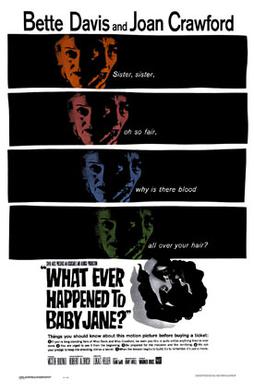
What Ever Happened to Baby Jane? is a 1962 American psychological horror thriller film directed and produced by Robert Aldrich, from a screenplay by Lukas Heller, based on the 1960 novel of the same name by Henry Farrell. The film stars Bette Davis and Joan Crawford, and features the major film debut of Victor Buono. It follows an aging former child star tormenting her paraplegic sister, a former movie star, in an old Hollywood mansion.

Glensheen, the Historic Congdon Estate is a 20,000 square foot mansion in Duluth, Minnesota, United States, operated by the University of Minnesota Duluth as a historic house museum. Glensheen sits on 12 acres of waterfront property on Lake Superior, has 39 rooms and is built in the Jacobean architectural tradition, inspired by the Beaux-Arts styles of the era. The mansion was constructed as the family home of Chester Adgate Congdon. The building was designed by Minnesota architect Clarence H. Johnston Sr., with interiors designed by William A. French Co. and the formal terraced garden and English style landscape designed by the Charles Wellford Leavitt firm out of New York. Construction began in 1905 and was completed in 1908. The home cost a total of $854,000, equivalent to more than $22 million in 2017. The home is a crowning example of design and craftmanship of the Midwestern United States in the early 20th century.
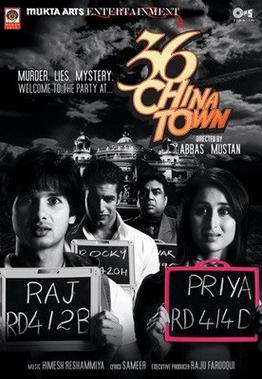
36 China Town is a 2006 Hindi English-language mystery thriller comedy film directed by Abbas-Mustan and produced by Subhash Ghai. It is an official adaption of the 1992 American film Once upon a Crime.
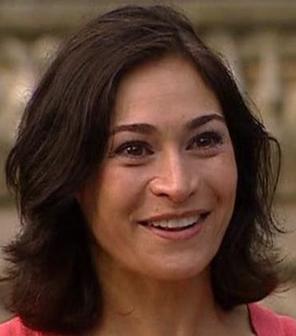
Perdita Hyde-Sinclair is a fictional character from the British soap opera Emmerdale, played by Georgia Slowe. Slowe joined the main cast alongside Christopher Villiers as Perdy's husband Grayson Sinclair. She made her first appearance in the lead up to the wedding between Sadie King and Grayson's brother Alasdair Sinclair, which was broadcast on 1 March 2006. Perdy received immediate comparisons to Sadie, and an Inside Soap columnist pointed out that just like her, Perdy also "loves money, men and getting her way." Slowe bemoaned her and Villiers' slow introduction to the show, saying they had nothing to do for the first six months as producers let viewers get used to their characters.
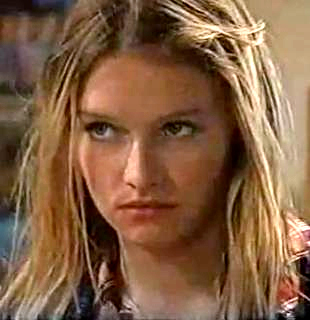
Justine Welles is a fictional character from the Australian soap opera Home and Away, played by Bree Desborough. She made her first on-screen appearance on 5 June 1997 and departed on 7 April 2000.
Doodeind ("Deadend") is a 2006 Dutch horror-thriller film written and directed by Erwin van den Eshof, it stars Victoria Koblenko, Everon Jackson Hooi and Anniek Pheifer.
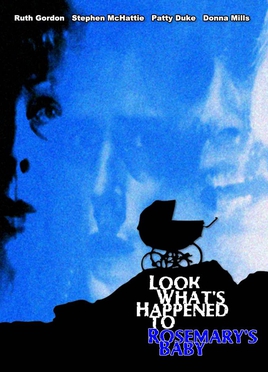
Look What's Happened to Rosemary's Baby is a 1976 American made-for-television horror film and a sequel to Roman Polanski's 1968 film Rosemary's Baby starring Stephen McHattie, Patty Duke, George Maharis, Ruth Gordon and Ray Milland. The film premiered as the ABC Friday Night Movie on October 29, 1976.

Terror in the Haunted House is a 1958 American horror film produced by William S. Edwards and directed by Harold Daniels. The movie stars Gerald Mohr, Cathy O'Donnell, William Ching, and John Qualen. Its plot follows newlywed Sheila, who moves with her husband Philp into a rural Florida mansion which she is horrified to discover was the subject of a recurring nightmare for which she sought psychiatric care in Switzerland. The house is the key to events that have haunted her husband's family for a generation, and Philip's intent is to use her mind to unlock the mystery.
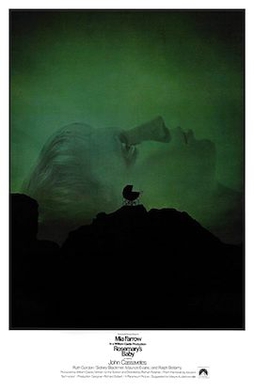
Rosemary's Baby is a 1968 American psychological horror film written and directed by Roman Polanski, based on Ira Levin's 1967 novel of the same name. The film stars Mia Farrow as a young wife living in Manhattan who becomes pregnant, but soon begins to suspect that her elderly neighbors are members of a Satanic cult who are grooming her in order to use her baby for their rituals. The film's supporting cast includes John Cassavetes, Ruth Gordon, Sidney Blackmer, Maurice Evans, Ralph Bellamy, Patsy Kelly, Angela Dorian, and Charles Grodin in his feature film debut.

Your Vice Is a Locked Room and Only I Have the Key is a 1972 giallo film directed by Sergio Martino. The picture stars Edwige Fenech, Luigi Pistilli, and Anita Strindberg. The film uses many elements from Edgar Allan Poe's 1843 short story "The Black Cat" and acknowledges this influence in the film's opening credits.

Scream, Pretty Peggy is a 1973 American made-for-television horror film directed by Gordon Hessler and starring Bette Davis, Ted Bessell, and Sian Barbara Allen. Its plot follows a young college student who is given a job by a sculptor housekeeping at a mysterious mansion where his sister and their elderly mother reside. It was broadcast as the ABC Suspense Movie on November 24, 1973.

Imaginary Playmate is a thriller film which debuted on LMN in 2006. The film stars Dina Meyer, Rick Ravanello, Cassandra Sawtell, and Pablo Coffey.

Night Must Fall is a 1937 American film adaptation of the 1935 play by Emlyn Williams, adapted by John Van Druten and directed by Richard Thorpe. It stars Robert Montgomery, Rosalind Russell and Dame May Whitty in her Hollywood film debut at age 72, who earned an Academy Award nomination for Best Supporting Actress. She reprised her role in the stage drama in London and New York City. A critical success, Night Must Fall was named the best film of the year by the National Board of Review. Robert Montgomery also received an Oscar nomination for Best Actor in a Leading Role. A 1964 remake starred Albert Finney, although the remake did not do as well as the original.

Sian Barbara Allen is a former American actress who mainly appeared on television throughout the 1970s. A native of Reading, Pennsylvania, Allen studied at the Pasadena Playhouse before appearing in her first screen role on the series O'Hara, U.S. Treasury in 1971. She went on to appear in numerous television series in the ensuing years, including recurring appearances on The Waltons, Gunsmoke, and Ironside.

The Hideout is a 2007 Italian-American mystery film written and directed by Pupi Avati. It marked the comeback of Avati to the thriller genre after a series of intimate dramas and nostalgic comedies.

The Babysitter is a 1980 American made-for-television thriller film directed by Peter Medak and starring Patty Duke Astin, William Shatner and Stephanie Zimbalist about a young girl hired as a live-in nanny who infiltrates and tries to destroy a suburban Seattle family. The film originally premiered as The ABC Friday Night Movie on November 28, 1980.
Naomi Agans Hintze was an American writer of mystery, supernatural and gothic suspense novels for adults.
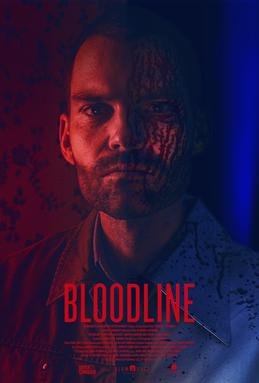
Bloodline is a 2018 American psychological horror film directed by Henry Jacobson. The film was written by Avra Fox-Lerne, Will Honley and Jacobson. It stars Seann William Scott, Mariela Garriga, Dale Dickey, and Kevin Carroll. The film is a co-production between Divide/Conquer and Blumhouse Productions.


















